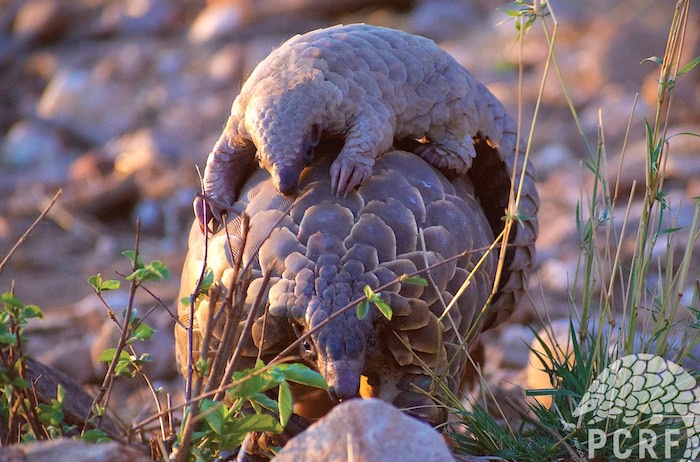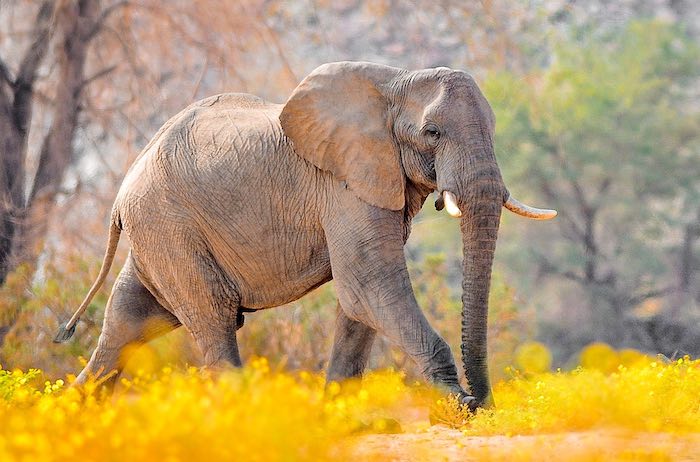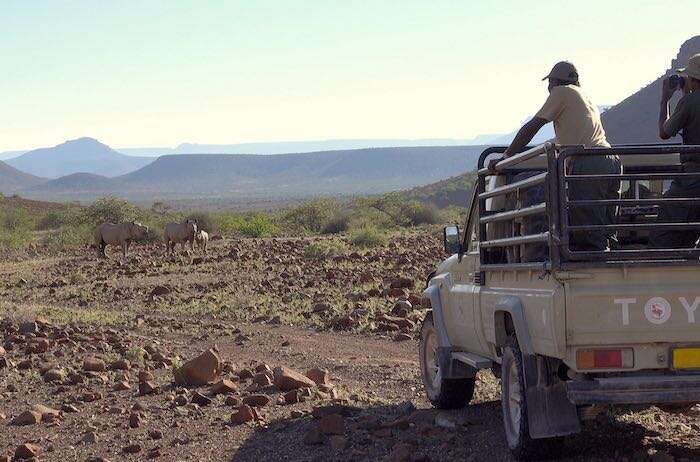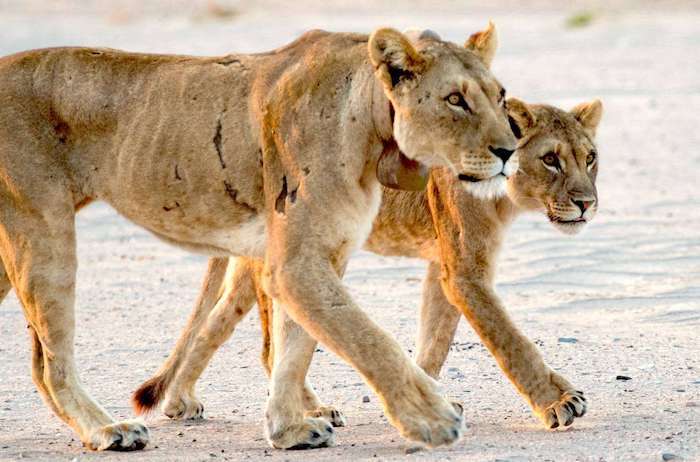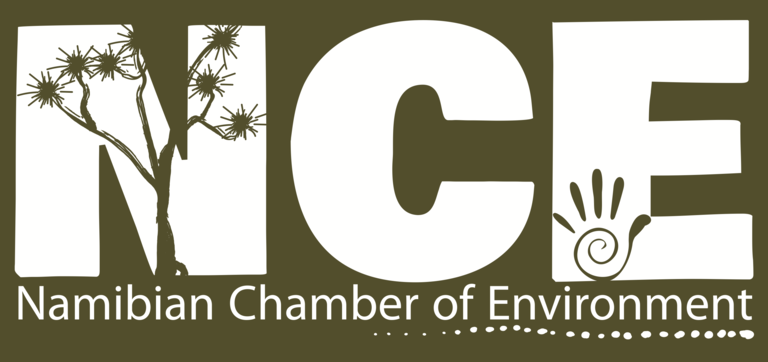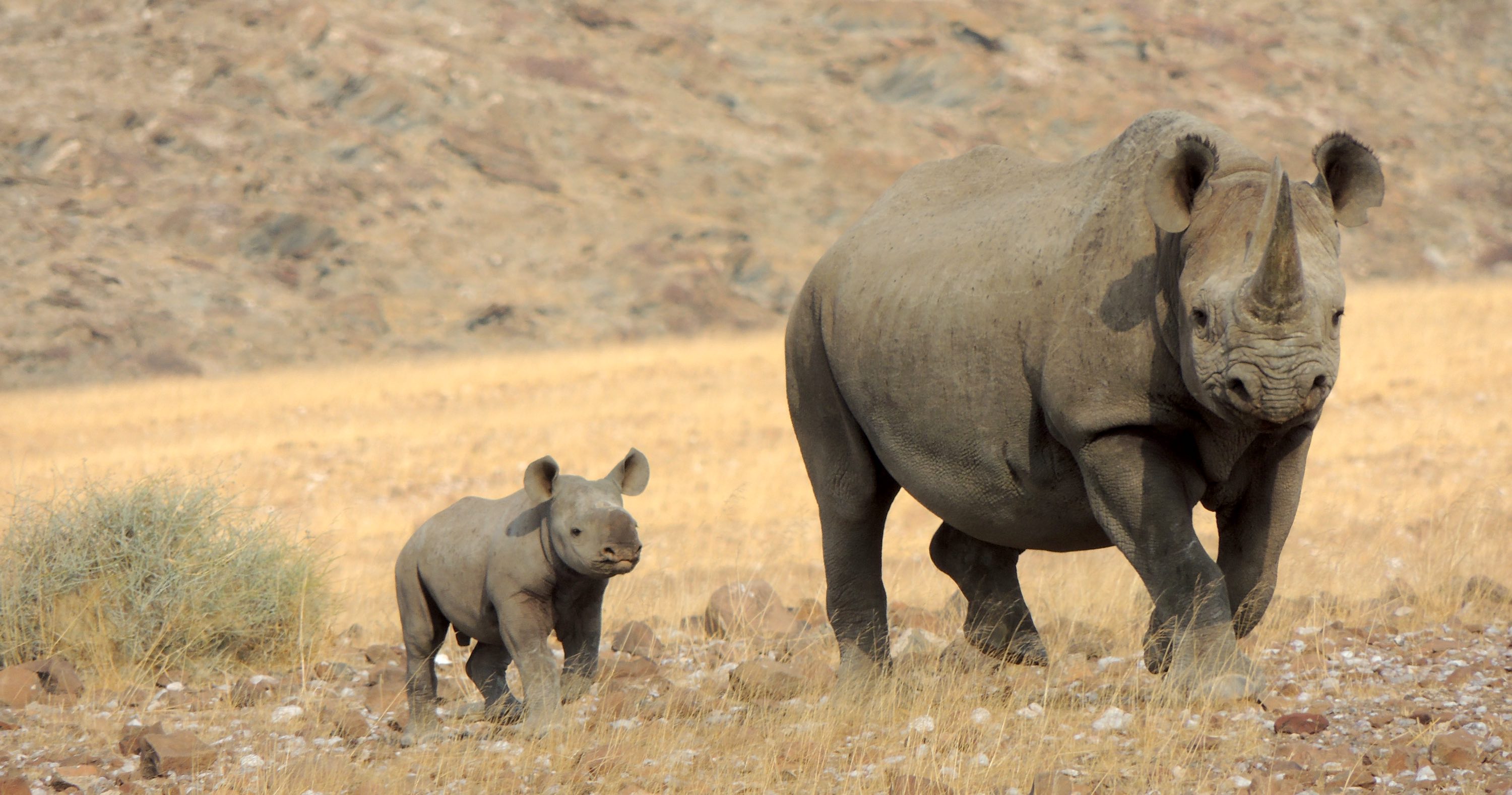
The Kunene Rhino Awards
Honouring Those Who Keep an Eye on Namibia's Free-Roaming Rhinos
9th September 2021
The black rhino population in Namibia’s north-western Kunene Region is one of the last truly free-ranging rhino populations in the world. Covering a rugged, mountainous semi-desert region the size of a small country (25,000 km2), these rhinos give us hope for their Critically Endangered species. In a period of 2.5 years (2018 to mid-2020), not a single rhino in this population was poached. This is a stunning achievement, considering that these rhinos live in an unfenced landscape on formally unprotected communal lands. What is the secret to this success?
Protecting rhinos in the northwest is a huge team effort, which involves a unique collaboration among relevant government ministries, police, Traditional Authorities, non-governmental organisations, private sector tourism companies and communal conservancies. This network of institutions and individuals working collaboratively to protect rhinos share intelligence, create local pride in the rhino population and, crucially, support intensive rhino monitoring efforts led by teams of dedicated local rangers.
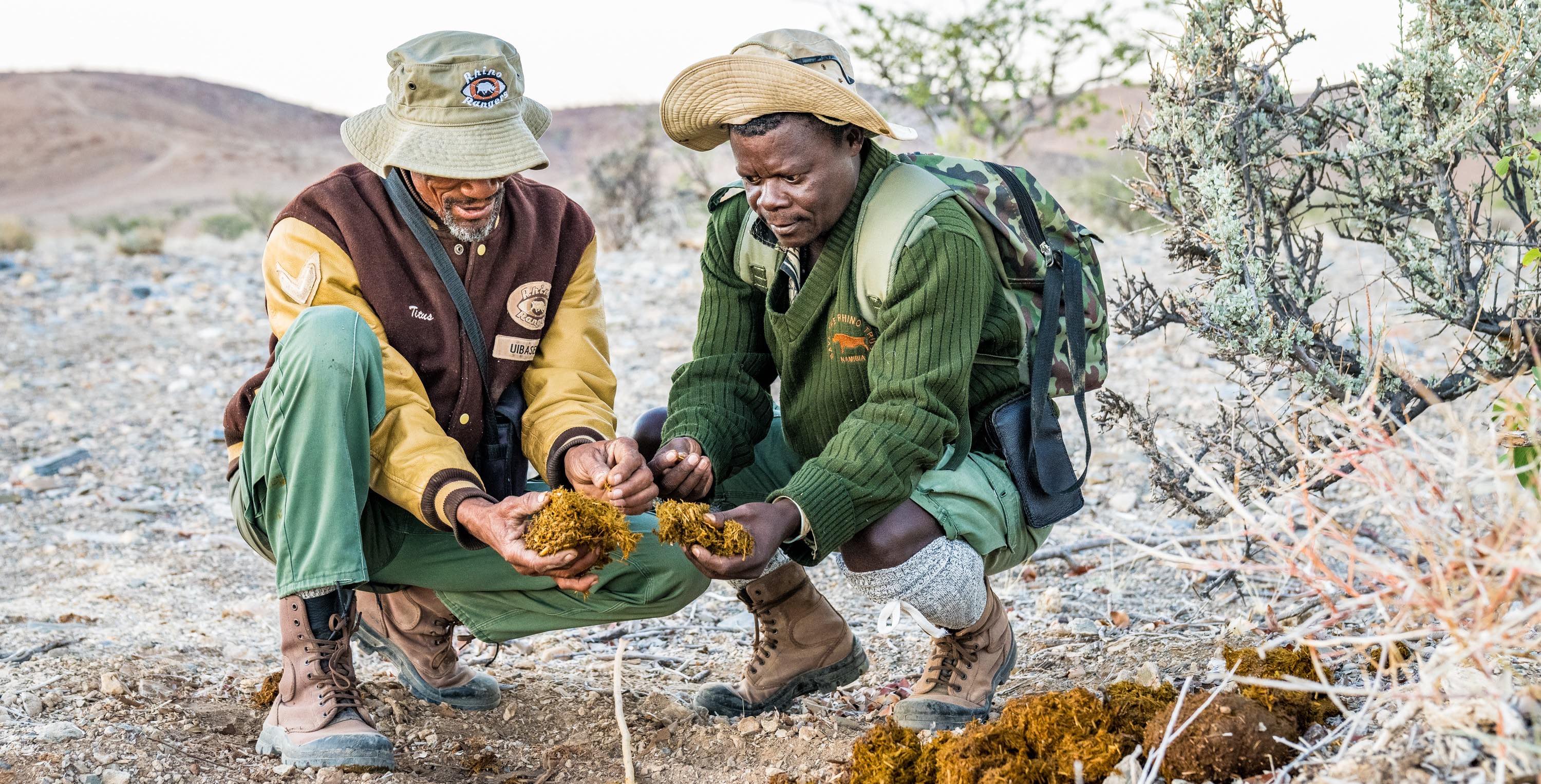
Since the threat of rhino poaching in Namibia raised its ugly head once more (reaching a peak in Namibia during 2013), rhino monitoring patrols in Kunene increased 12-fold and the number of rhino sightings recorded by rangers increased five-fold. This effort is even more impressive in reality than it sounds – to find just a few rhinos with individually identifiable ear notches, rangers must hike long distances over the roughest terrain imaginable, camp in the wilderness for days on end, and be prepared for extreme desert temperature swings from 40°C on summer days to sub-zero winter nights. The constantly updated information on rhino movements obtained in this way ensures that even one rhino going missing for an abnormal length of time will not go unnoticed.
Besides finding rhinos and recording their whereabouts, the rangers create an important link between government authorities and the people who live in the area. Spearheaded by Save the Rhino Trust (SRT) in 2012, the Conservancy Rhino Ranger Incentive Programme fundamentally seeks to shift the rhino conservation agenda from what has been historically a government and NGO-led initiative to a more community-driven approach. This programme was established in response to the conservancies’ leaders who back in 2011 requested to be more engaged and empowered in rhino protection. The priorities have therefore been to train, equip and enable conservancy appointed and employed Rhino Rangers to monitor the rhino population often alongside rangers employed by SRT and Integrated Rural Development and Nature Conservation (IRDNC), most of whom also hail from the Kunene Region. Rhino Rangers are trusted and respected for their role in keeping the rhinos safe on behalf of everyone else. The people living in Kunene therefore know who to call when they see suspicious activities. In this way, several would-be poachers have been caught before they even killed a rhino, and are liable for the same criminal charges as those who actually did the evil deed.
To honour and recognise these hard-working men and women (to date, five rangers appointed by conservancies have been women), SRT hosted the first-ever Kunene Rhino Awards ceremony in March 2020. Over 60 rangers who work for SRT, IRDNC and ten communal conservancies attended. Many local community leaders were present at the ceremony to show their appreciation and recognition of the rangers on behalf of their communities. The awards consisted of 200 prizes including medals, equipment, and custom ‘Rhino Hero’ jackets across more than a dozen performance categories.
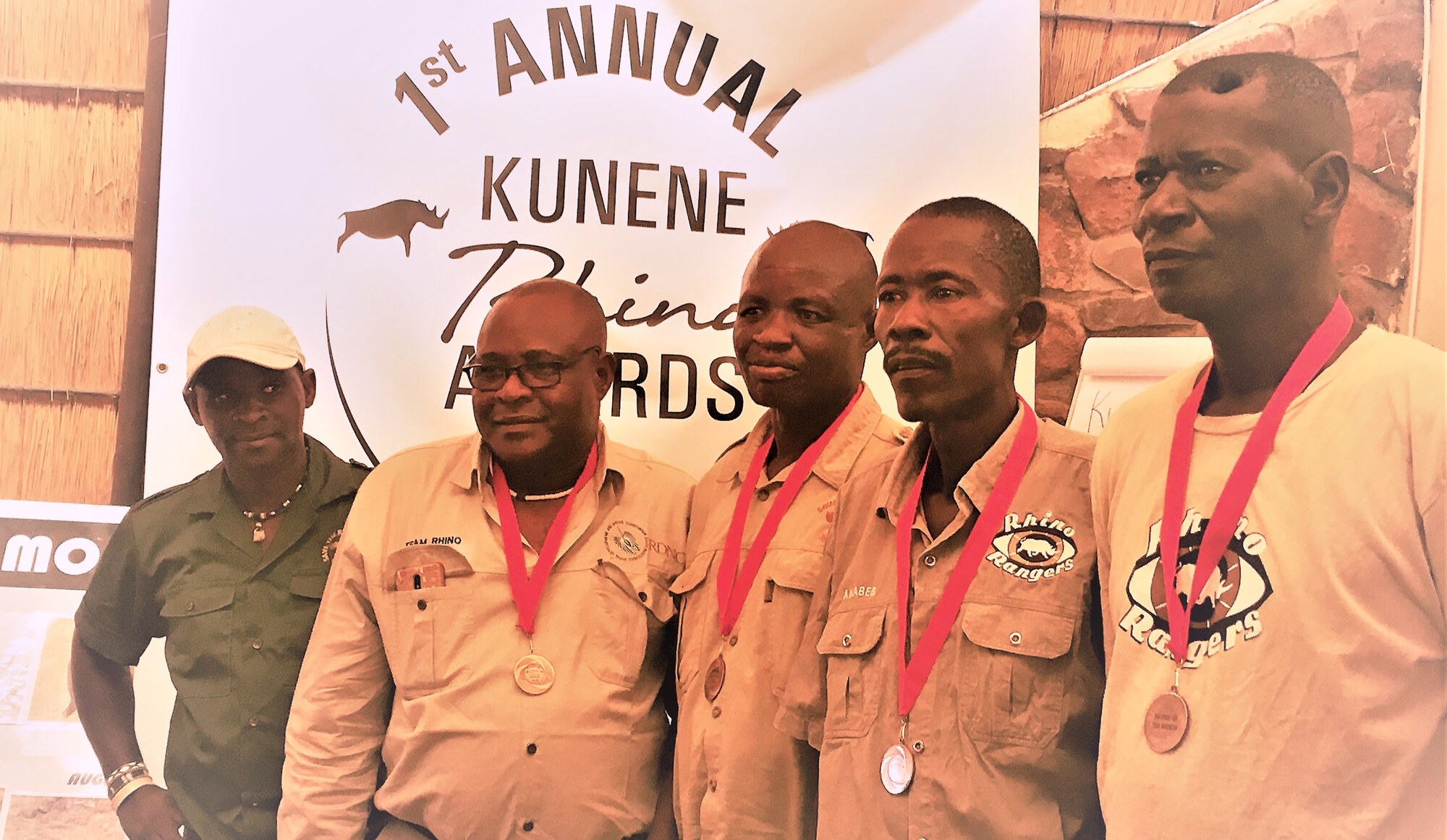
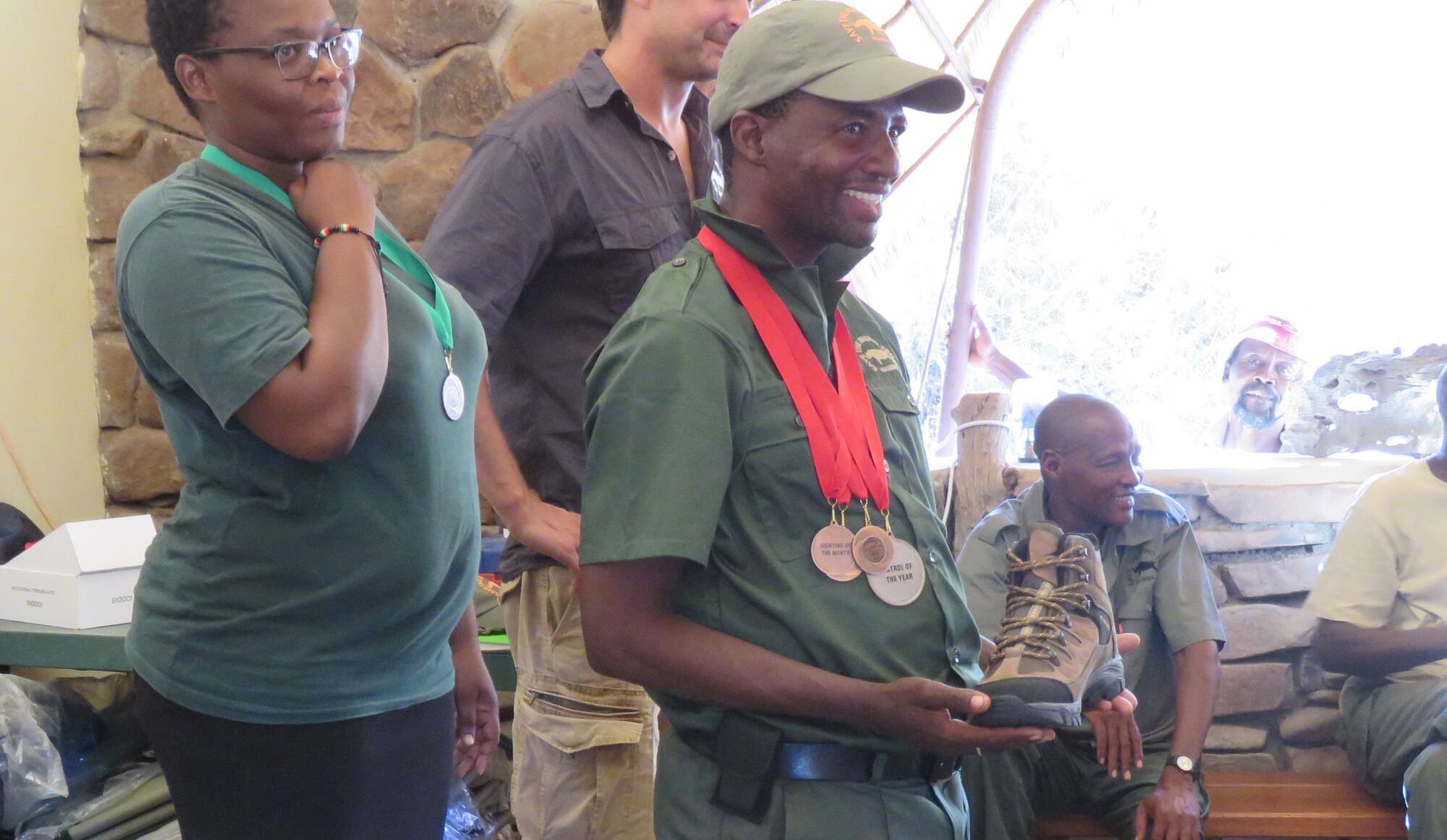
Simon Kangombe was awarded for walking 2,439 kilometres during his 2019 patrols, which is a lot further than the distance from Swakopmund to Cape Town! Unsurprisingly, Simon was part of the team that won the best patrol award – measured in terms of distance walked and days spent in the field. Taking good photos of the rhinos is another important part of patrols, and the winning photo award (decided by vote of all present and featured at the top of the article) was given to a Rhino Ranger team led by IRDNC. The prizes for most courteous driver and best new ranger went to Martin Nawaseb and Hofney Hoeb respectively, while a special award for bravery was presented to two women – Jessica Kharuxas and Fiona Goses from Sorris Sorris and Tsiseb Conservancy, respectively – who recently joined the programme. These were just a few of the awards presented to rangers at the event, all of whom were especially proud of their joint achievement of keeping the Kunene rhino poaching-free for 2.5 years. One ranger exclaimed, “I am so excited to show these medals to my children!”
At SRT we recognise that the best-laid plans and strategies for protecting rhino would be totally ineffective without the right people putting in the hard yards day in, day out. The free-ranging black rhino population is the pride of the local communal conservancies and the whole of Namibia – these precious animals are worth every bit of effort we collectively spend to conserve them. The Kunene Rhino Awards is set to become an annual celebration of the dedicated rangers in the northwest, which is a small yet much appreciated way of saying “thank you” for keeping our rhinos wild and free.
Funding for this event was provided by WWF in Namibia through the USAID Combating Wildlife Crime Project and the Minnesota Zoo.
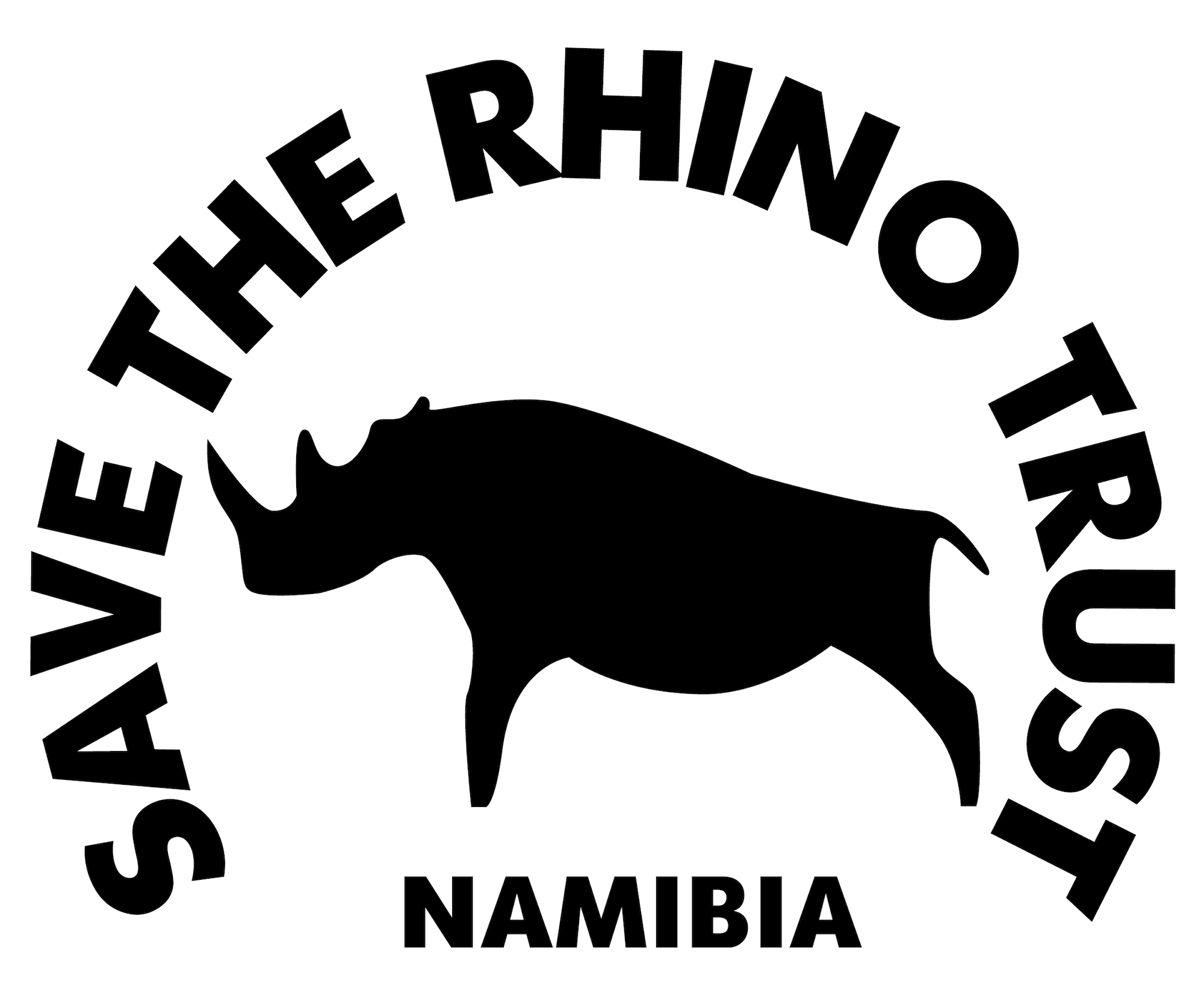
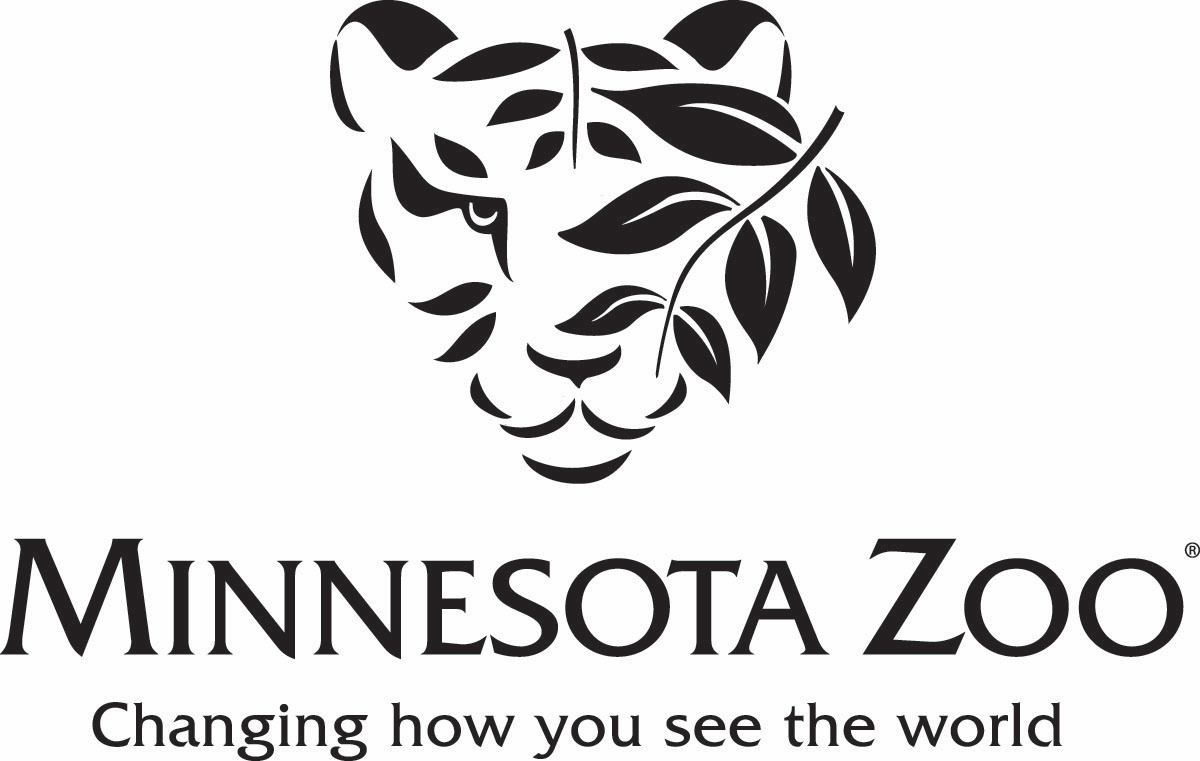
For articles on similar topics, please click one of the following options:
If you enjoyed this page, then you might also like:
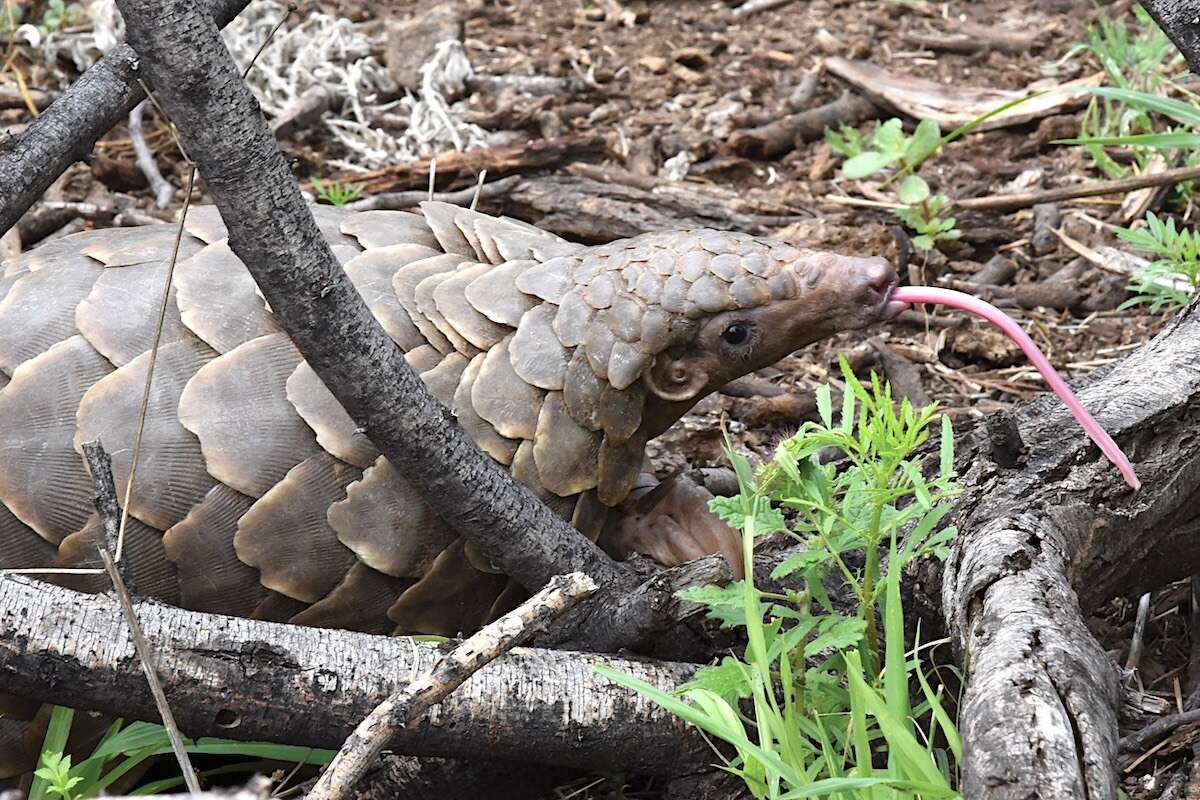

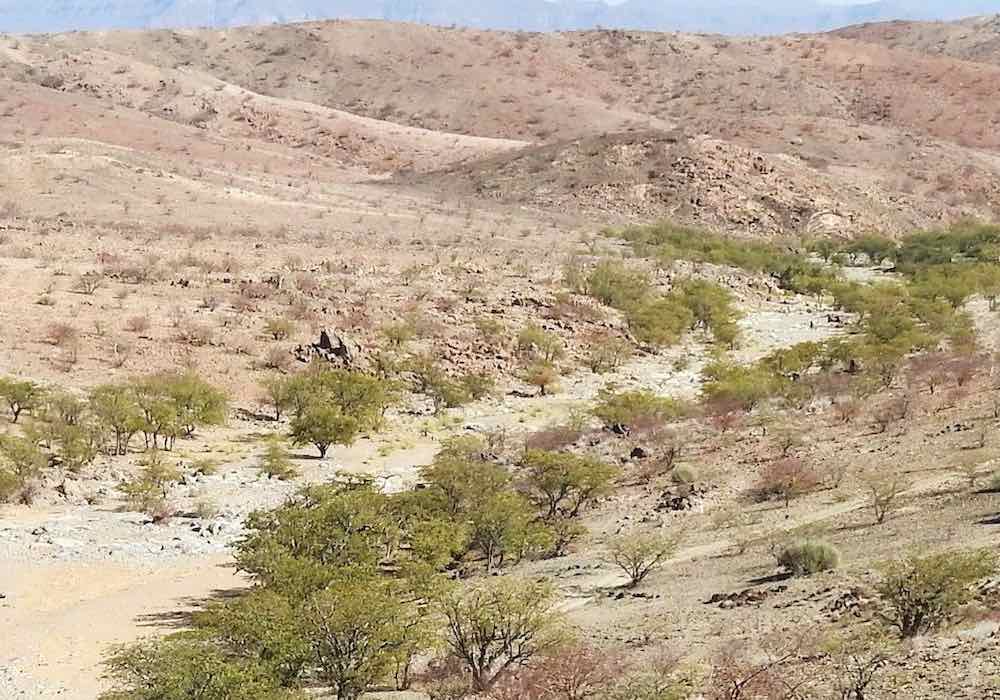
For more great articles from Conservation Namibia see below...
Conservation Namibia brought to you by:
We use cookies to monitor site usage and to help improve it. See our Privacy Policy for details. By continuing to use the site, you acknowledge acceptance of our policy.



